This law finally included children with disabilities in public education in an inclusive way, mandating that all children have the right to a “free and appropriate public education” in the “least restrictive environment” possible.
This Federal amendment to the 1963 Community Health Centers Act gave states the responsibility for making and implementing plans for comprehensive community services for people with disabilities.
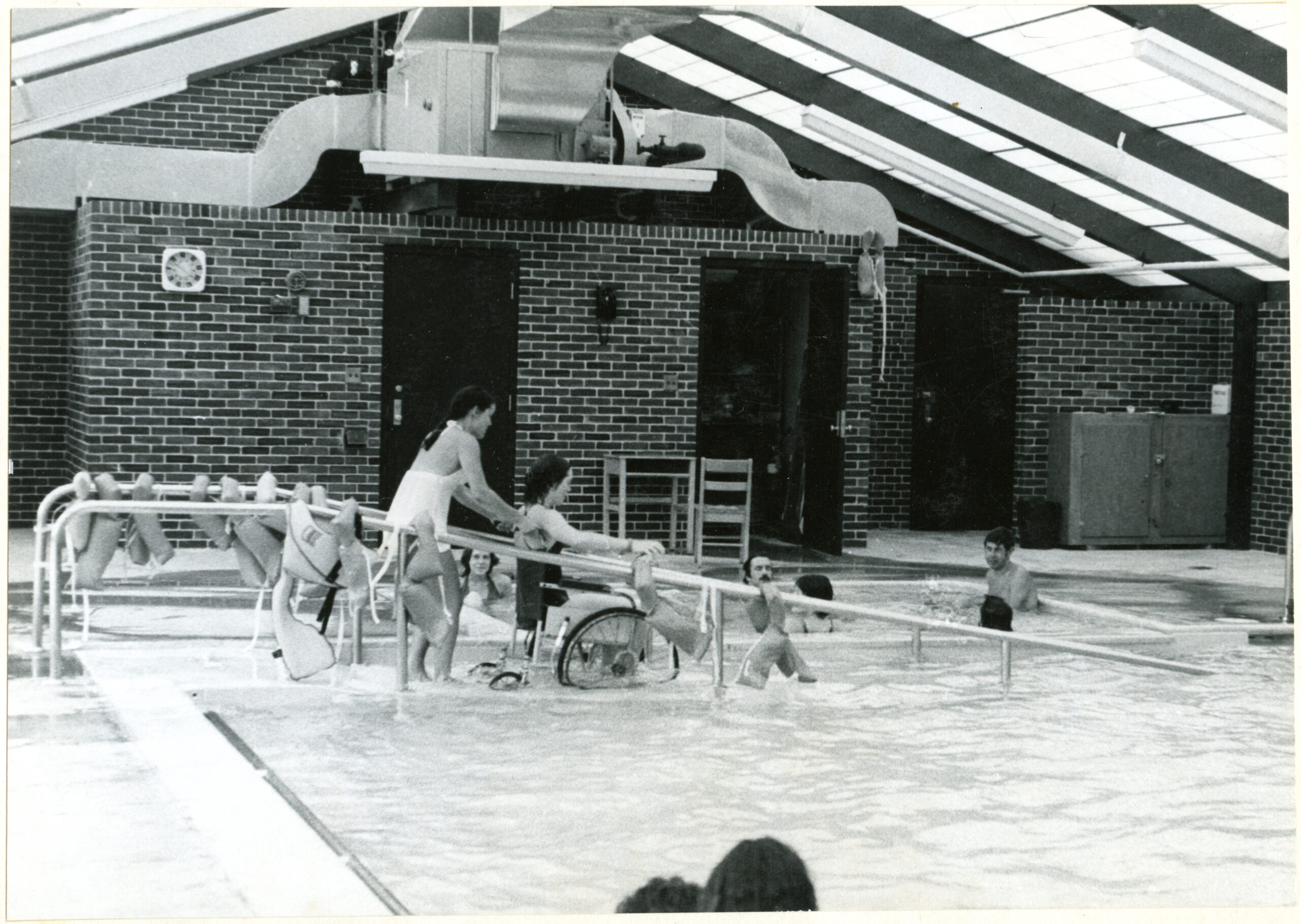
Change and reform were in the air at Pineland, but despite some new ideas and improvements, problems continued.
On the ballot in 1969 was a referendum bond issue for $2.5 million in funds to “enlarge and improve” institutions, which passed by a large margin. Complaints brought by staff around pay and hours were also addressed.
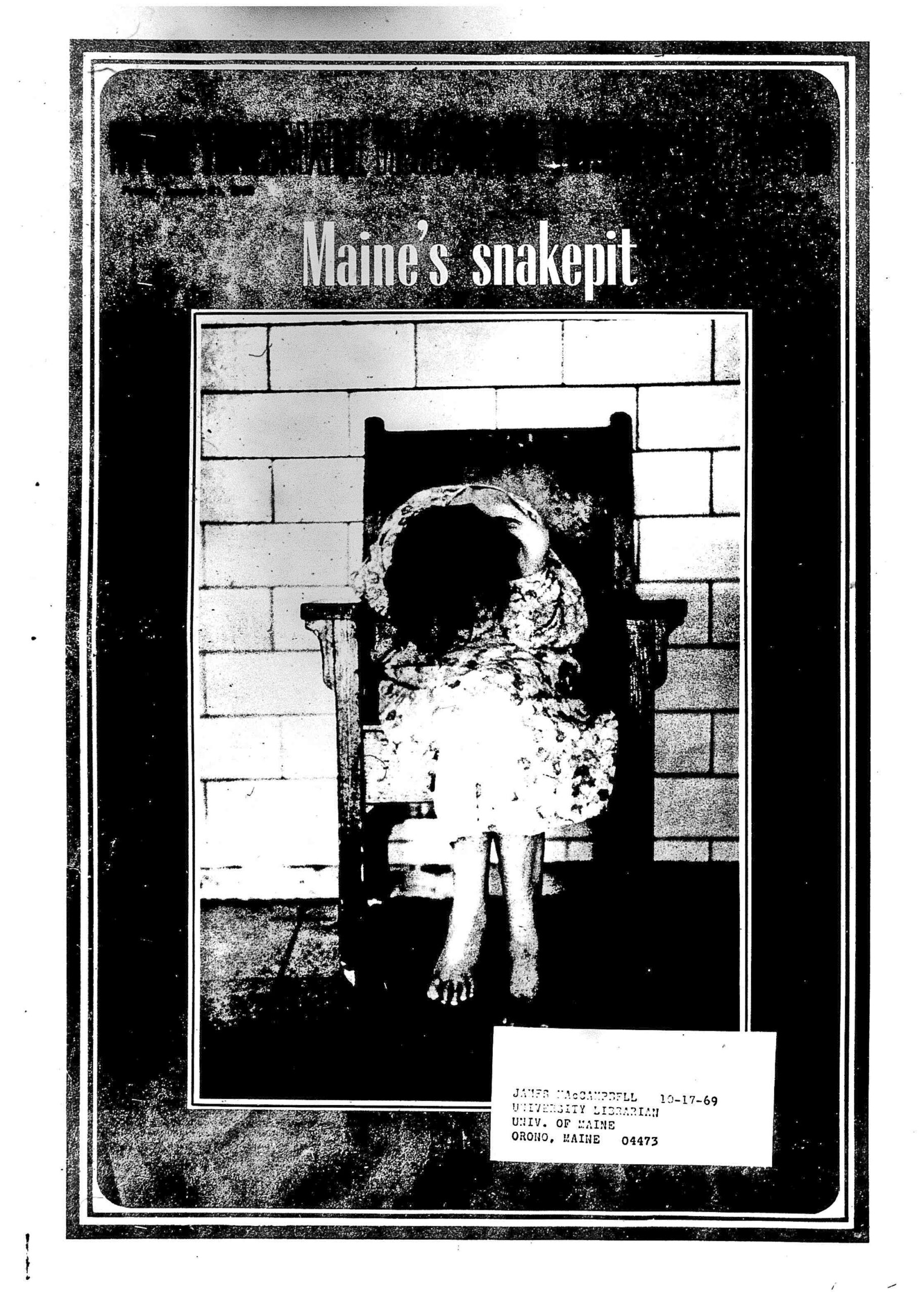
A Maine Times exposé in 1969 revealed overcrowding, residents with inadequate clothing, staff shortages, and deteriorating facilities. Another exposé, in The Church World in 1972 found similar problems.
Another “responsibility” that was granted to this new department was control over people with developmental disabilities who were determined to need guardianship, and who didn’t have family members willing or able to be guardians.
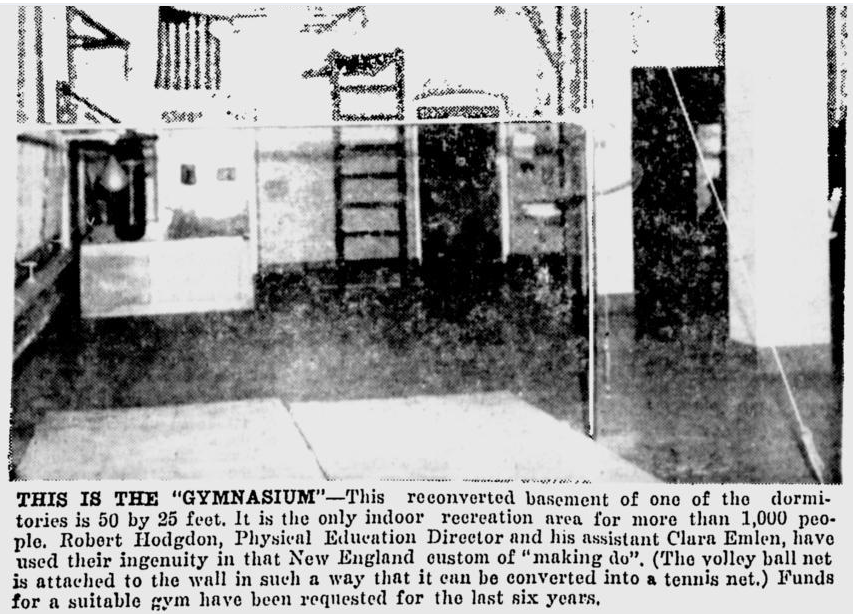
Staffing issues and high turnover was a constant refrain in the mid-1960’s in Maine’s institutional system. In 1965 it was determined that Maine’s turnover rate in this industry was twice the national average.
Congress passes the Maternal and Child Health and Mental Retardation Planning Amendments, which would create funding for both services for children with disabilities and grants to “plan for and take other steps leading to comprehensive State and community action to combat mental retardation”.
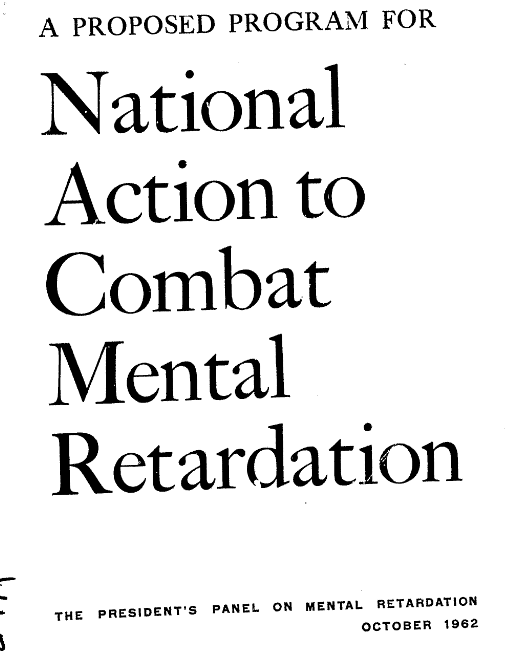
President John F. Kennedy had a personal connection to institutionalization and as President he would bring developmental disabilities into the public eye, and make the reenvisioning of services for people with developmental disabilities a cornerstone of his policies.
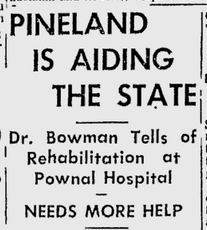
New ideas were cropping up - it was beginning to be understood that services provided in the community were both more humane and less expensive. But even as a new infirmary to “house 134 totally dependent patients” was dedicated, Governor Reed called for more, saying, “the needs of this and other state hospitals continue to grow".
